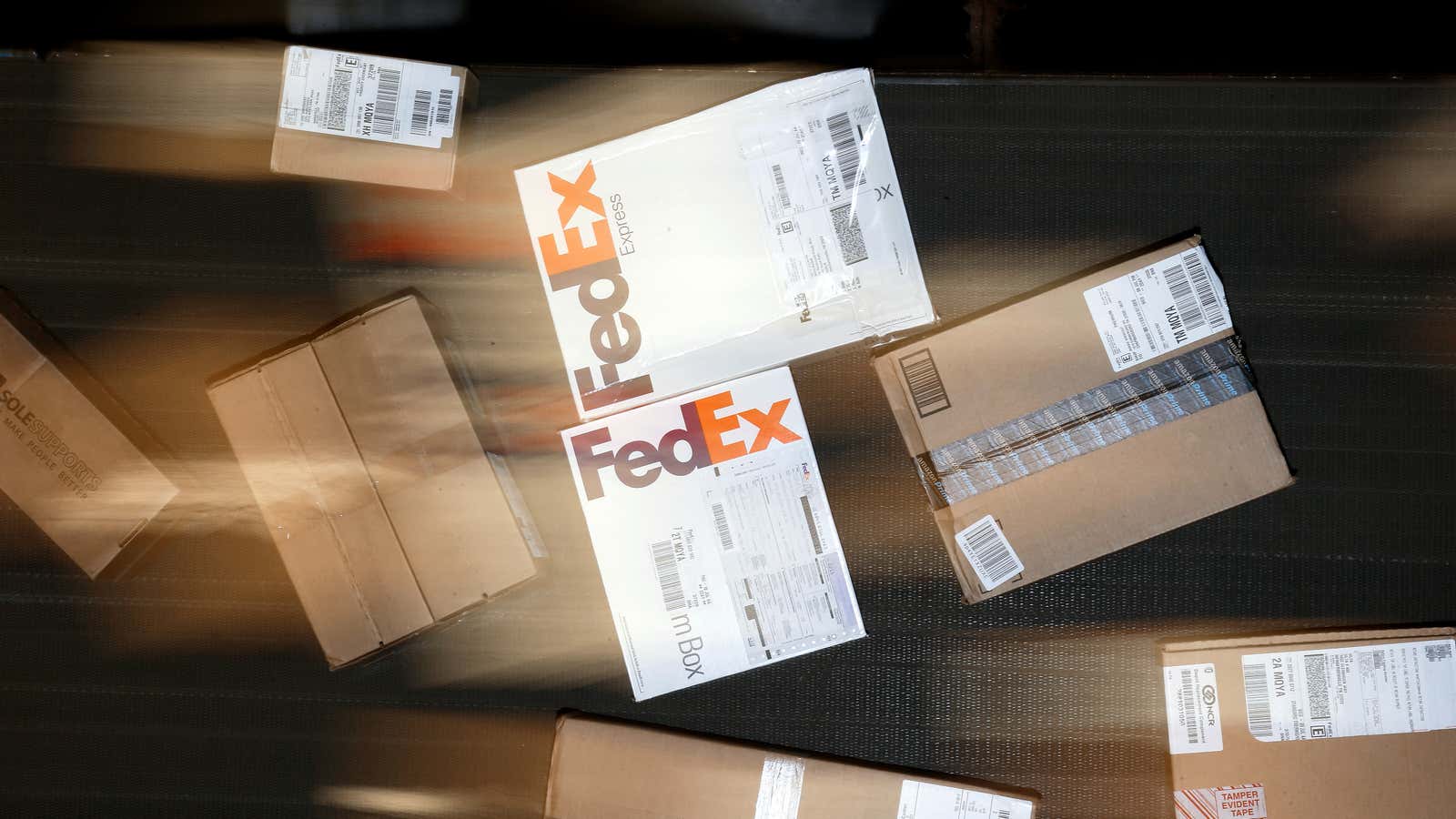US prosecutors have unveiled allegations that FedEx, despite warnings from the government, acted as the distribution network for illegal online pharmacies that sold restricted drugs, from pain-killers to anti-anxiety medicines, to be used recreationally.
If convicted, the company could face some $1.6 billion in penalties; FedEx has denied the allegations and says it will fight them in court. In particular, the company says it has repeatedly asked the US Department of Justice for a list of pharmacies it should not do business with and hasn’t received one.
But the indictment does not portray the company in a pleasant light: It describes FedEx delivery trucks swarmed with the recipients of these drugs, demanding that FedEx drivers give them packages of pills, or forcing drivers to meet them in empty parking lots or vacant houses in an effort to avoid detection. Eventually, the company would start holding the prescriptions at pick-up locations for these problematic customers.
When FedEx and other delivery services are found to be transporting drugs, they typically don’t get in trouble: Customers are warned not send illicit materials and must sign a document saying they aren’t sending anything illegal. But the Department of Justice alleges that despite warnings from the government, and an awareness that, as one FedEx manager put it “it is becoming more apparent to us that many of these companies are fraudulent and doing business outside of federal regulations,” the company continued doing business with people they knew were breaking the law.
This suspicion was even noted in a policy circulated to the company’s sales team—not to prevent them from doing business with these companies, but to make sure that they collected payments in advance.
Online pharmacies selling restricted drugs have been popular targets of law enforcement ire—just consider the infamous bitcoin-driven market Silk Road—but prescription pills are especially pernicious, since their abuse lead to more deaths in the United States compared to the drugs more traditionally conceived of as dangerous.




